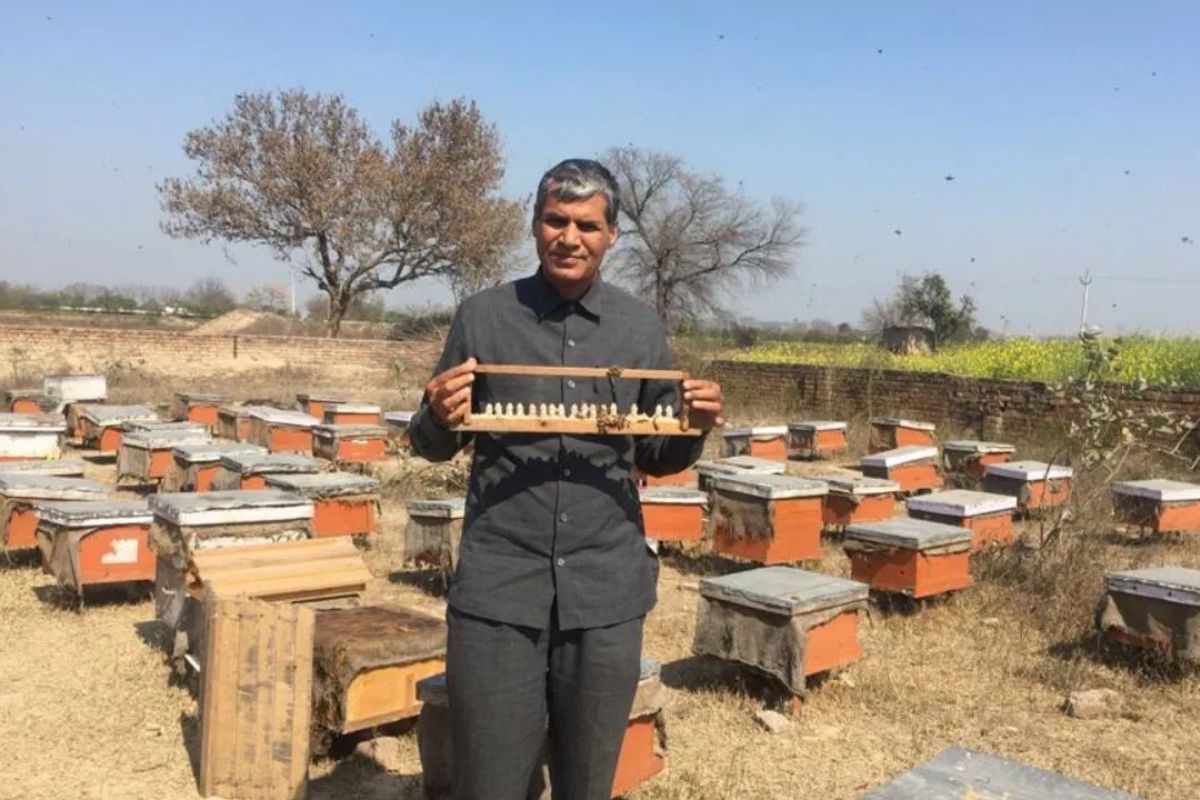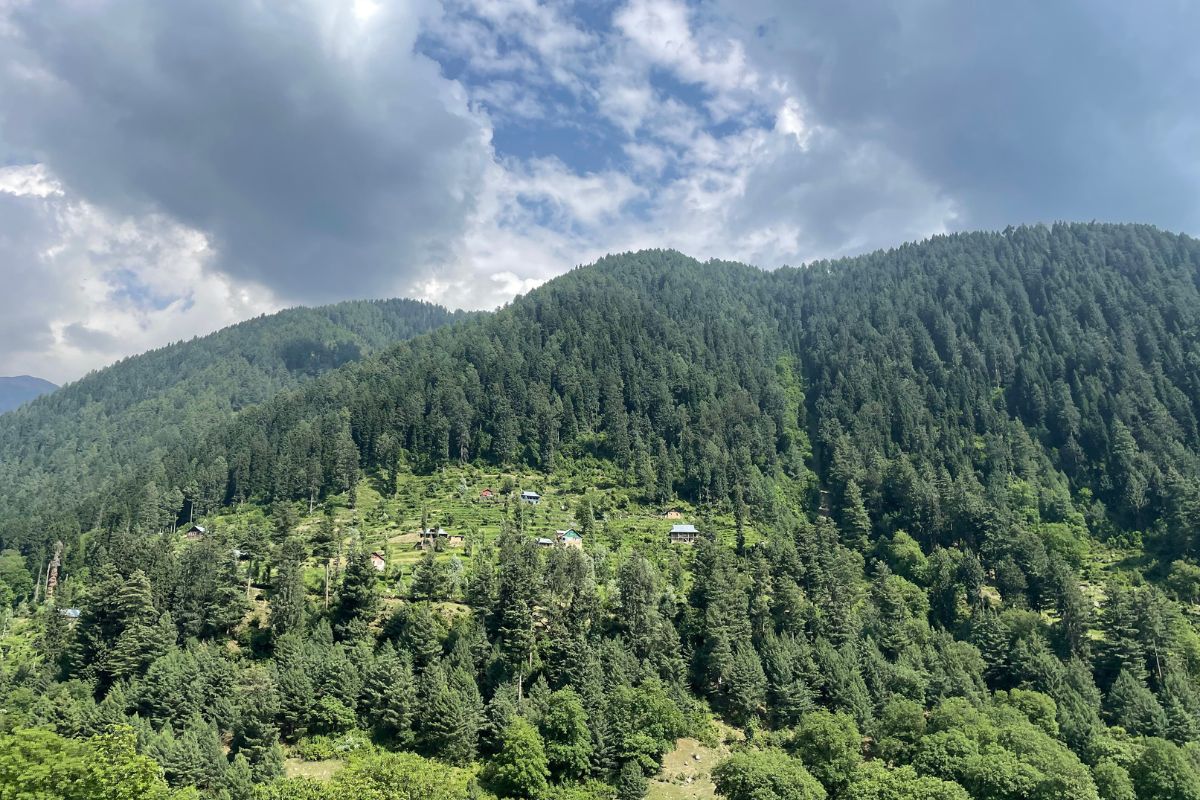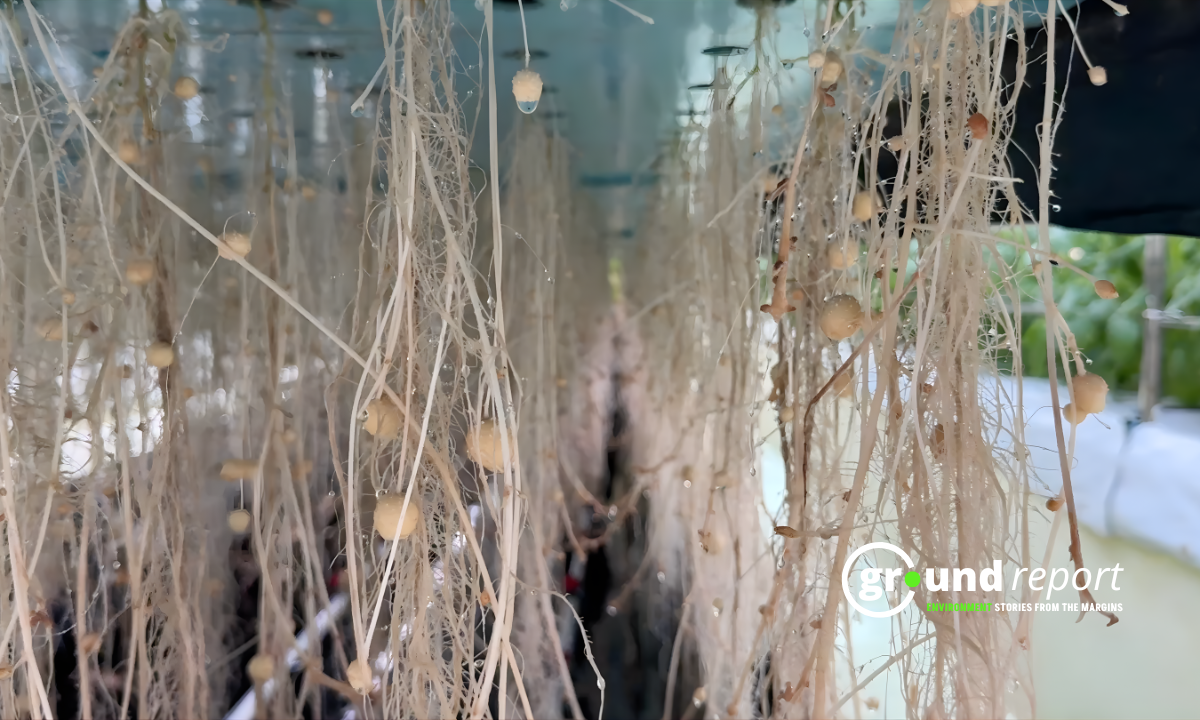Jagpal Singh Phogat, a progressive farmer from Jhajjar in Haryana, is transforming Indian agriculture through sustainable practices. Amid water scarcity, unpredictable weather, and reliance on chemical fertilizers affecting nearly 99% of farmers, Phogat is driving innovative solutions that enhance yields and contribute to environmental conservation.
Jagpal Singh Phogat transforms Indian farming
Phogat’s beekeeping journey began in the early 2000s, after observing small-scale farmers’ difficulties. He saw beekeeping as a solution for increasing farm productivity through improved pollination and creating an additional revenue stream. He recalls his beginnings, saying, “Initially, I bought 30 boxes and invested ₹60,000. We faced challenges without formal training.” Despite being stung multiple times and experiencing setbacks, he continued.
Initially, Phogat and his wife Mukesh Devi harvested seven to eight boxes of honey weekly and sold it locally. To expand his beekeeping operations, he needed proper knowledge and skills. In 2004, he took formal beekeeping training, learning about bee species, hive management, and migrating bee colonies.
After 15 years as an English teacher, Phogat started beekeeping due to local agriculture difficulties. “I was a teacher for 15 years, but farming needed innovation. Beekeeping was the answer,” he shares. With a turnover of ₹1.5 crore last year, Phogat has demonstrated beekeeping’s commercial viability. His operations span Jammu, Haryana, Rajasthan, and Uttar Pradesh, where he manages a team of over 30 people.
Their “Nature Fresh” honey is renowned for its quality and unique flavours like Tulsi, Ajwain, and Lychee. With over 2,000 bee boxes, Phogat’s operation spans five states, producing 600 to 700 quintals of honey annually.
Phogat emphasizes that current government support schemes are insufficient for farmers. “The situation of most farmers is disheartening. They deserve prosperity,” he says. His commitment to environmental sustainability and economic empowerment has led him to pioneer beekeeping as a lucrative, eco-friendly practice.
Phogat promotes beekeeping for farmers
While traditional farming remains the backbone of rural economies, Phogat sees beekeeping as a new income stream. By producing honey, wax, and other by-products, beekeeping enhances crop pollination, increases agricultural productivity, and promotes sustainability. It requires low initial investment but offers high profitability, making it attractive for farmers across India.
Committed to spreading beekeeping knowledge, Phogat has trained over 700 individuals. In partnership with the Sri Sri Institute of Agricultural Sciences and Technology (SSIAST), Phogat helps farmers transition to sustainable practices. Through workshops and on-the-ground training, he is empowering rural communities to adopt this profitable and environmentally friendly model.
Phogat’s beekeeping venture goes beyond honey production. He and his wife, Mukesh Devi, have diversified into products like bee pollen, bee wax, propolis, and bee venom. Their work has garnered national recognition, including awards from the Indian Agricultural Research Institute (IARI) and the Union Ministers of Agriculture and Steel.
Jagpal Singh Phogat’s efforts showcase agricultural innovation potential. By promoting beekeeping, he helps farmers earn a sustainable income and fosters environmental conservation by improving biodiversity through natural pollination. His work shows that with the right approach, small-scale farmers can thrive and contribute to sustainability.
Support us to keep independent environmental journalism alive in India.
Keep Reading
Part 1: Cloudburst in Ganderbal’s Padabal village & unfulfilled promises
India braces for intense 2024 monsoon amid recent deadly weather trends
Follow Ground Report on X, Instagram and Facebook for environmental and underreported stories from the margins. Give us feedback on our email id greport2018@gmail.com.
Don’t forget to Subscribe to our weekly newsletter, Join our community on WhatsApp, and Follow our YouTube Channel for video stories.









